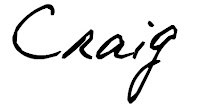MacKenzie
just wrote tangentially about the North Carolina
government lunchbox inspection story, and I had a Facebook discussion on the topic, but I'm going to expound upon it here, in order to make some further points. As an introduction, here's what happened:
RAEFORD — A preschooler at West Hoke Elementary School ate three chicken nuggets for lunch Jan. 30 because the school told her the lunch her mother packed was not nutritious.
The girl’s turkey and cheese sandwich, banana, potato chips, and apple juice did not meet U.S. Department of Agriculture guidelines, according to the interpretation of the person who was inspecting all lunch boxes in the More at Four classroom that day.
I remarked on Facebook that if anyone thinks there is nowhere to cut government, here's a prime candidate. I think the idea that government is now inspecting lunches is the latest, greatest example of government overreach in this country. The response by supporters of this idea will be that some kids get really poor lunches, and we have to help those kids out. That idea prompts several responses.
The first of these is that you can lead a horse to water, but you can't make it drink. You can give kids all the healthy food you want, but that doesn't mean they will eat it (never mind that the lunch in question in this article was what most people would consider perfectly acceptable). Schools in LA found out that, no, kids would not eat
quinoa salad. Instead, they bought junk food off the "black market." If kids don't eat their government-approved lunches, do you force them? I don't think that will work.
Second is the question of where this ends. After we start inspecting everyone's lunches, what's next? The kids who are bringing unhealthy lunches to school are quite possibly not brushing their teeth as often as they should. Will we have inspectors looking in kid's mouths after they look in their lunchboxes? Will the government hand out toothbrushes with their chicken nuggets?
Third is the impact of government policy on Americans' eating habits. The lunch police are motivated by the growing (literally!) obesity problem in this country. But why has this come about? I think someone could probably write a good journal article on the effects of various government food policies on our diets. The example that jumps out at me is high fructose corn syrup, which exists because
sugar tariffs have driven up US prices well above the world market price, prompting food manufacturers to find alternatives. A lot of people claim that US farm policy, which promotes growing grains,
makes bad food cheap and attractive.
Food stamps and school lunches are two other programs worth examining in this regard. Maybe this is one of the countless examples (e.g. the housing crisis) of government trying to create solutions to a problem it has created (while refusing to admit that it is culpable).
Fourth is the application of government programs, supposedly intended to help the poor, to everyone. Why do rich senior citizens have to use Medicare? Why do rich women have to receive
free contraceptives? Why is there a consistent push to shove every kid into pre-kindergarten? And in this case, why must everyone's lunch be inspected? I suspect that it is not out of a desire to help everyone, but instead out of a desire for government to control more and more of our economy and our lives, because we can't take care of ourselves. This has to stop, not only for budgetary reasons, but for reasons of freedom and self-reliance, characteristics our country needs to remain successful, but that are slowly melting away.
There's a little food for thought for you, that the lunch inspector will surely disapprove of.










